
Author Thomas Suarez spoke to a group of nearly 100 on the third floor of the Integrative Learning Center last night on the subject of his recent novel, “State of Terror: How terrorism created modern Israel.”
The talk started with an introduction, followed with an hour-long speech from Suarez and then led to an open discussion among the audience. The talk was co-sponsored by Jewish Voices for Peace, Interlink Publishing, Media Education Foundation and Students for Justice in Palestine.
Suarez started by stating that the Palestinian and Israeli conflict is not the irreversible conflict that it has been made out to be; the common goal for everyone is to reach an end to the conflict.
“That’s why we’re here,” Suarez said.
Within the next hour, Suarez explained the rise of the issue and what he sees as viable solutions.
Throughout his talk, he worked to redirect the narrative the conflict has been given in the past, pressing on the point to re-examine what has already happened. He explained that Zionism, a movement originally for the the re-establishment and now protection of a Jewish nation—currently Israel—is not Jewish self-determination but actually the exact opposite. He went on to explain instances in which, in the attempt to make Israel purely Jewish, Palestinians were forced out of Israel in vicious ways. It was a time where it was seen as worse to raise your kids in a non-Jewish home than it was to be a murderer.
“The fact is that the agency placed Zionists’ need for ethically-correct settlers above the lives of the people,” Suarez said.
Near the end of his talk, he explained that while it may feel like the situation’s intensity calmed after the Arab-Israeli War of 1948, the notion is false; zionists, ethnic cleansing and terrorist attacks are still relevant.
“Here we are seven decades later…how do we finally fix this instead of going around talking about it? How do we finally bring peace? Increasingly, it is clear that the only possible solution is what should have happened in 1948— a single, democratic, secular state of equals,” Suarez said near the end of his talk. “The end to the conflict begins when we deprive this conflict of its smoke and mirrors and when we acknowledge there is a single state.”
During discussion, Suarez was asked to give his opinion on Noam Chomsky’s viewpoint that a one-state solution is not possible.
While also acknowledging that Chomsky has often been very thoughtful in his many past arguments, he thinks his perspective on this conflict betrays all the premised thinking in which he had become famous for.
“There’s some sort of disconnect between the person who has been so good on so many progressive issues, so good on the U.S. imperialism, and so good on the Israel-Palestine issue. Then, all of a sudden, to come up with this,” Suarez said.
Suarez was also asked by a Northampton resident about the comparisons between the Israeli military and the American police, in which he responded with the notion of solidarity between movements. He also added that no matter the bigotry and who it’s against, we should join together in solidarity against it.
There were mixed views among attendees, some who questioned Suarez on his explanations during the discussion and some who applauded him for his work.
“I believe this is a good discussion to have, even though this may have not been the best way to go about it,” said Aron Unger, junior public health major who asked the first question during discussion, pointing to certain claims made during Suarez’s original dissertation.
Gabriel Moushabeck is a citizen of Amherst who came out to hear Suarez talk after having read his recent book.
“I think the talk was right on. It was an excellent explanation of how terror began in the state of Israel between 1948 and 1969. But, I really think the book should be read in order to really understand the complexity of what’s going on today,” Moushabeck said.
Senior social thought and political economy major Celia Jailer, who has been involved in Students for Justice in Palestine since her freshman year, said she appreciated that the talk covered the perspective in opposition to the conflict posed as some age-old conflict between religious groups that’s been in existence for forever.
“Work like this that’s historically based….helps refuse this Americanized position where we’re pushing this conflict away as natural or inevitable,” Jailer said.
Caeli Chesin is a Collegian columnist and can be reached at [email protected] and can be followed on Twitter @caeli_chesin.







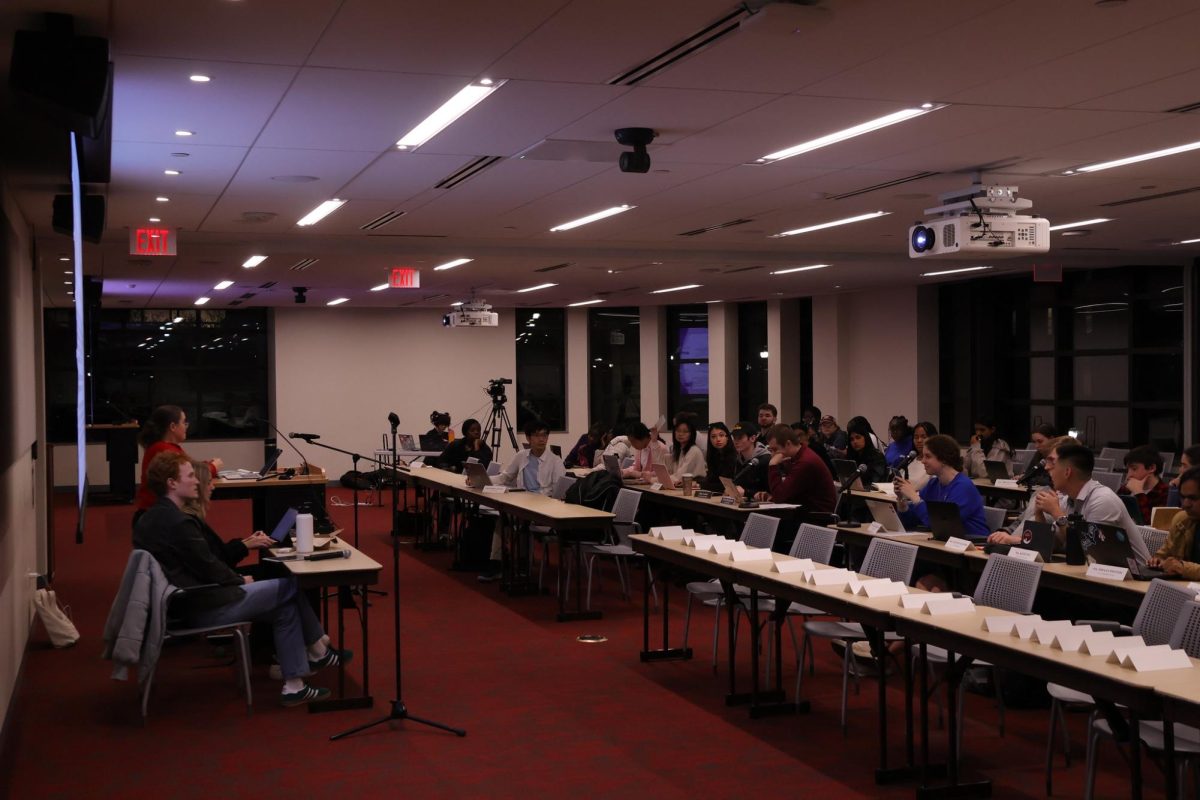
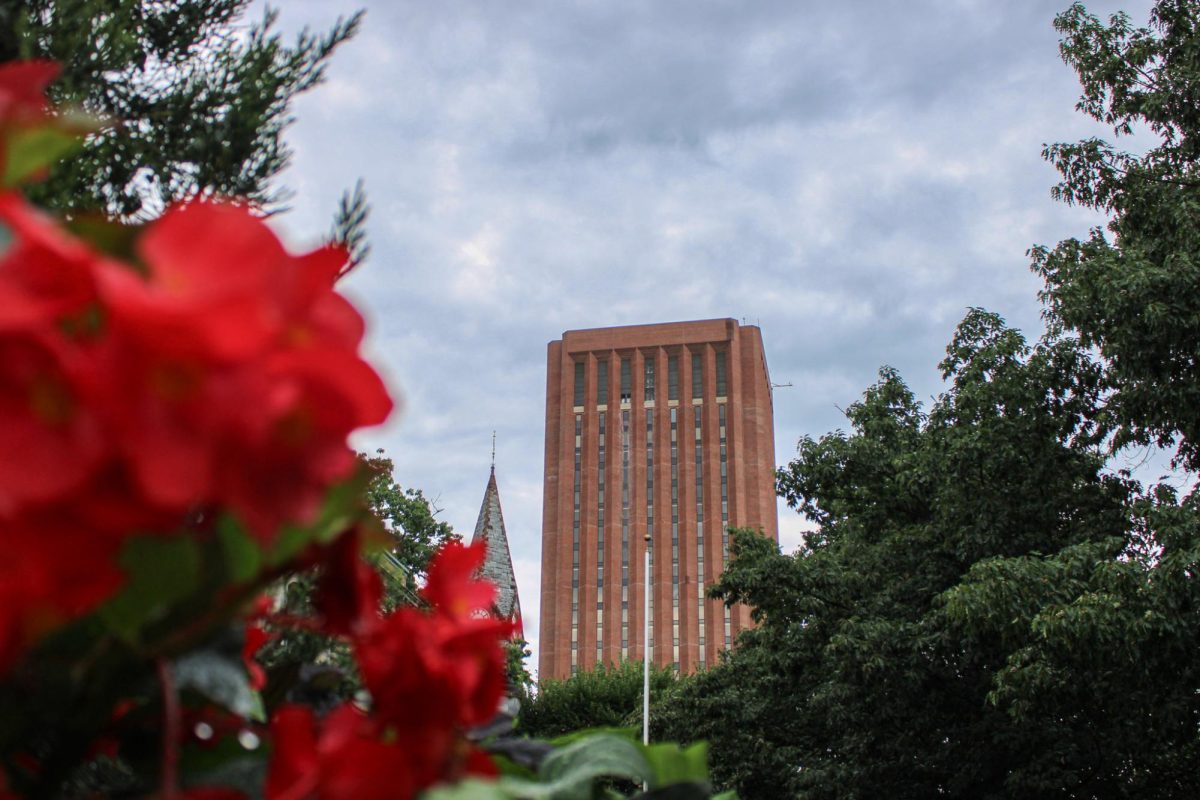


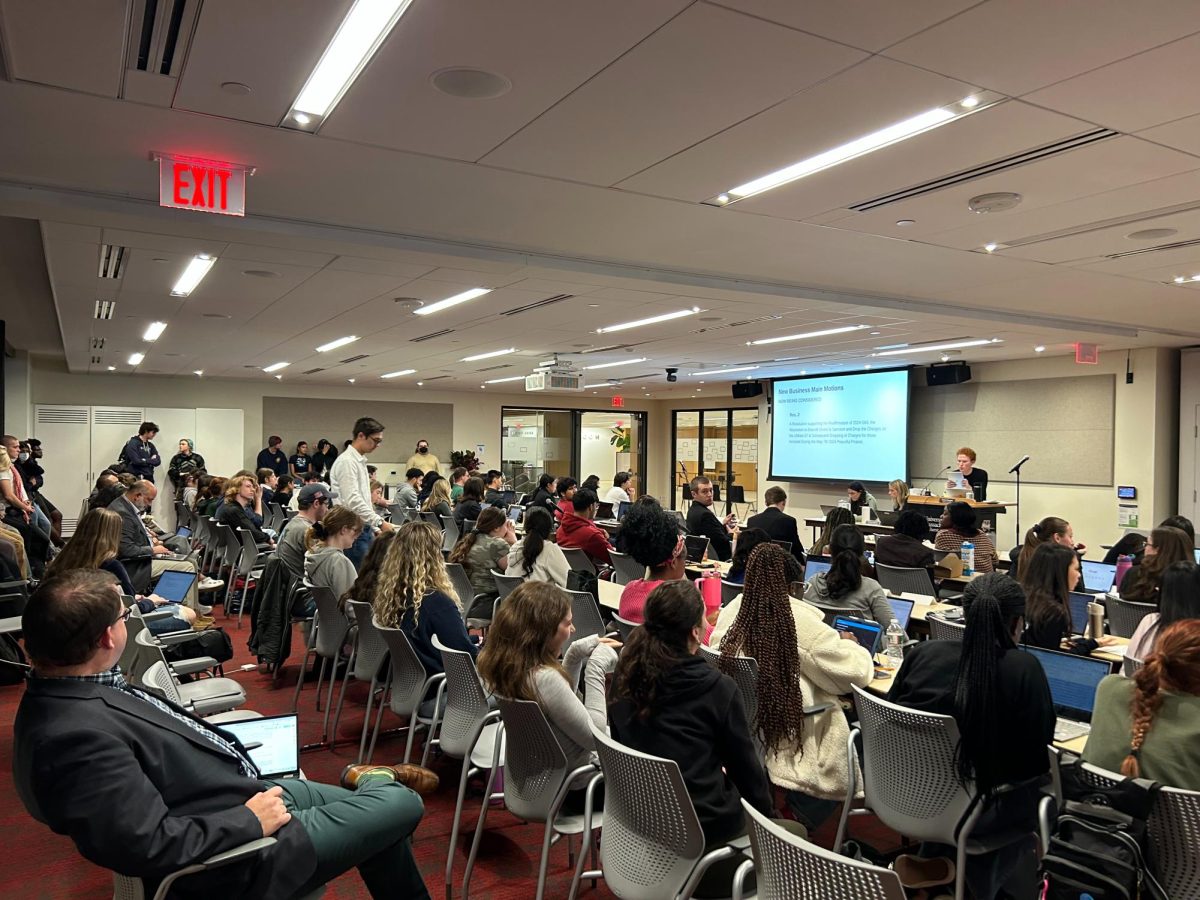
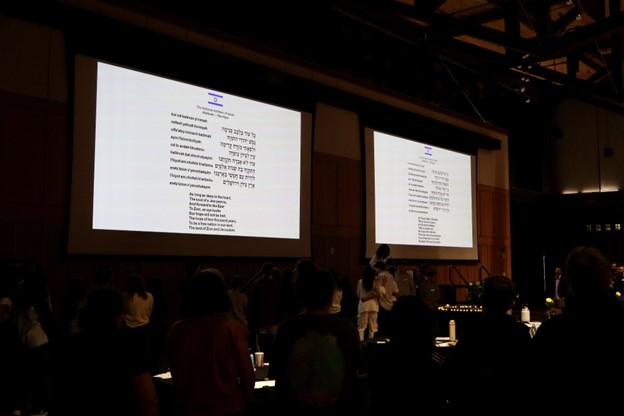
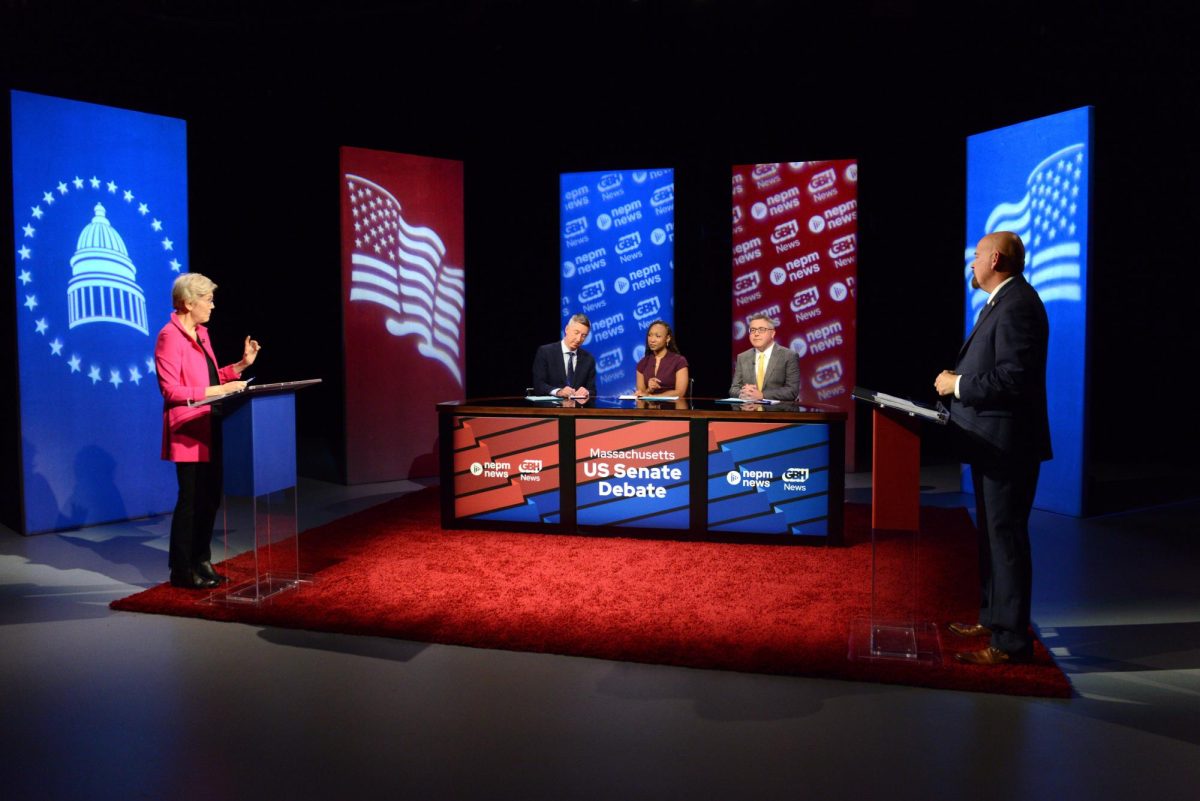
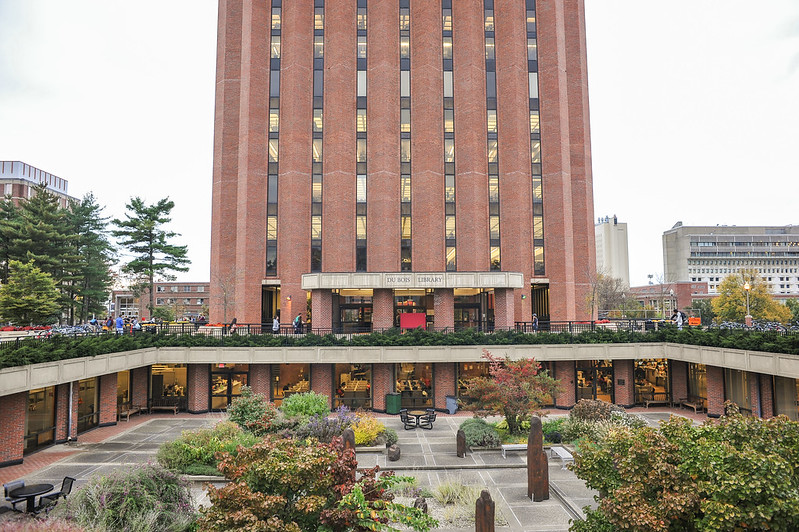
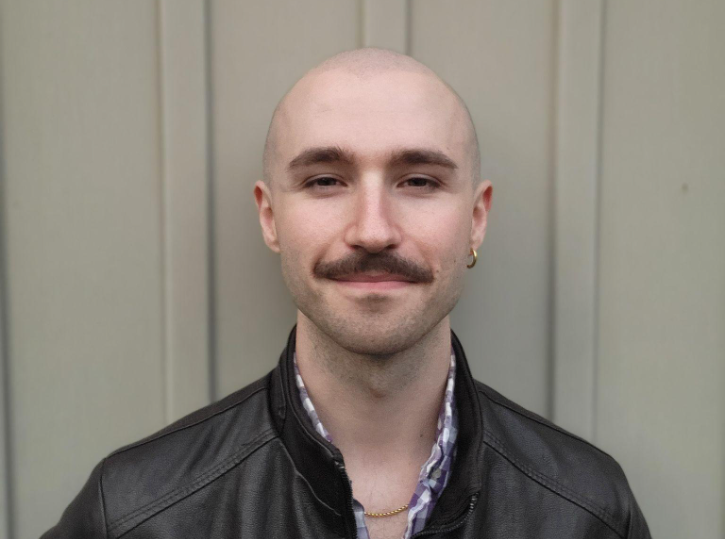
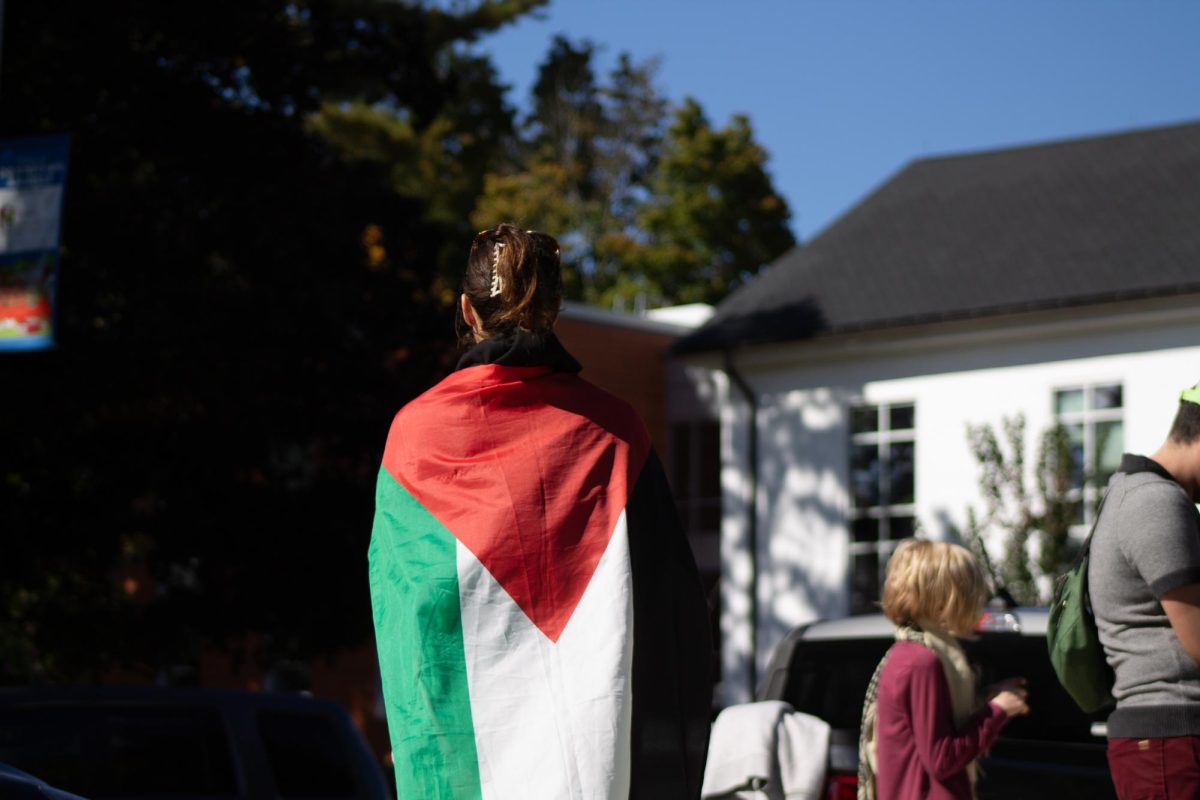
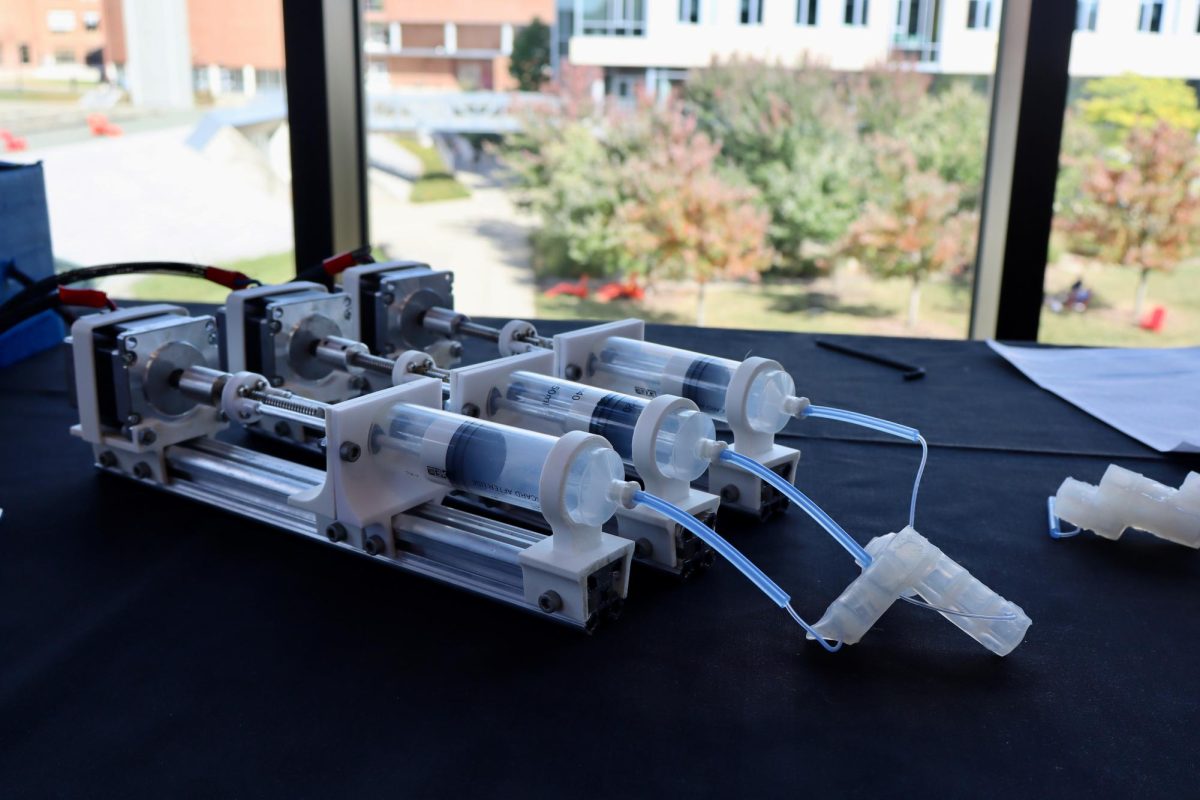
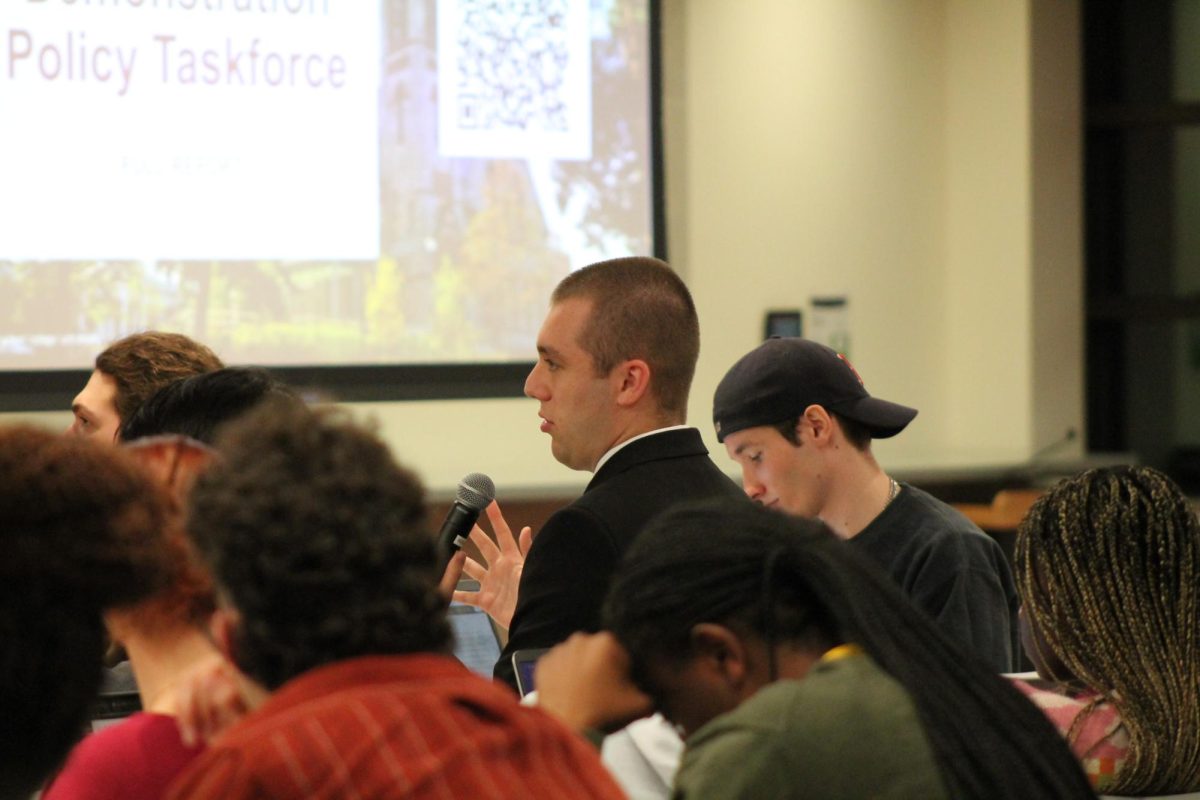
Tom Suárez • Oct 3, 2017 at 7:56 am
For anyone interested:
• Here is my response to Mr. Hoffman’s complaint against me, which he filed with the House of Lords: http://thomassuarez.com/houseoflordspaper142.html
• Here is my response to Mr. Hoffman’s and David Collier’s extensive PDF critique of my book: http://www.thomassuarez.com/collier_hoffman_response.html
• Here is my response to Yisrael Medad’s critique: http://thomassuarez.com/medad_response.html
• As for the various smears of anti-Semitism directed even at the fabulous organization Jewish Voice for Peace, it is Zionism that is inherently anti-Semitic. See my recent Link piece, here http://ameu.org/PDF-Archives/vol50_issue4_2017.aspx
Thanks, Tom Suarez
beer baron • Sep 29, 2017 at 5:04 pm
I looked up the innocuous-sounding “Jewish Voices for Peace” and quickly learned that it is a radical, anti-Zionist, hate group committed to Israel’s destruction.
It is such a vile organization, that it is on the ADL’s top-10 list of anti-Israel organizations. Quite an honor!
Nitzakhon • Sep 21, 2017 at 8:15 am
BS.
The root cause is simple: one side, the Arabs, wants the other side dead.
There can be no negotiations, or co-existence, with the opposition wanting your annihilation.
https://www.youtube.com/watch?v=76NytvQAIs0
Jeffrey Wiesenfeld • Sep 19, 2017 at 3:19 pm
No shortage of leftist ignorant nut jobs on even the best of campuses. No intellectual diversity or integrity. Diversity of every other type, though. On same page as another advertised sicko, Finkelstein. Where’s Vilkmoresson, Simone Zimmerman, Chomsky and all the others released because of deinstitutionalization? Morons – they don’t even grasp a basic principle of Poli Sci 1: the difference between guerrilla fighters and terrorists is in the selection of targets. Guerrilla fighters seek military targets – the King David was the headquarters of the British Mandate’s MILITARY. Terrorists murder civilians by DELIBERATE acts – this is Palestinian culture – send your kids with pride to commit suicide – just plain inhuman and unnatural. Of course, don’t speak about thousands of murders of civilians and diplomats, why further expose the true face of Palestinian nationalism – Abu Daoud, Yasser Arafat, Ahmed Shukeiry, George Habash and all the other bloodthirsty savages? It’s OK – BDS all you want – Bahrain, the Saudis, the Emirates, Egypt, the rest – they see the idiocy of professional “refugee” Palestinians and they rightfully don’t give a s–t.- 400,000 Arab-induced Palestinian refugees became 6,000,000? The Jews were thrown out of all Arab states at the same time, 1948 – 800,000 of them, evicted, property stolen, murdered in the streets, pogroms, et al. ALL settled elsewhere. NO Jews in any Arab state today. Grow up – Palestinians – move on like everyone else – make peace, get your own state, stop stealing aid and sending it to Europe, stop educating children for intergenerational hate and terror. MOVE ON WITH YOUR LIVES!
Yisrael Medad • Sep 19, 2017 at 12:27 pm
Mr. Suarez’s book and his views are problematic for three reasons.
His outlook is neo-Nazism, using blood, racism and ethnic-purity and other outlandish ideas to describe Jews without any justification or proof throughout his book.
Secondly, his thesis is backwards: it was the Arab terror that began decades before modern-day political Zionism that was what, in the sense Suarez uses the term, “created Israel”. If Arabs had not sought to ‘solve’ their problems through terror and reject every diplomatic compromise including partition, twice, there would probably have been a Palestine Arab state today.
Third, the book is factually error-filled. My review: http://myrightword.blogspot.com/2017/08/it-was-another-terror-that-established.html
Jonathan Hoffman • Sep 19, 2017 at 11:33 am
https://www.algemeiner.com/2017/09/05/deconstructing-the-anti-israel-book-state-of-terror/
Suarez’s book is a disgrace and has no place at a University.
Jonathan Hoffman